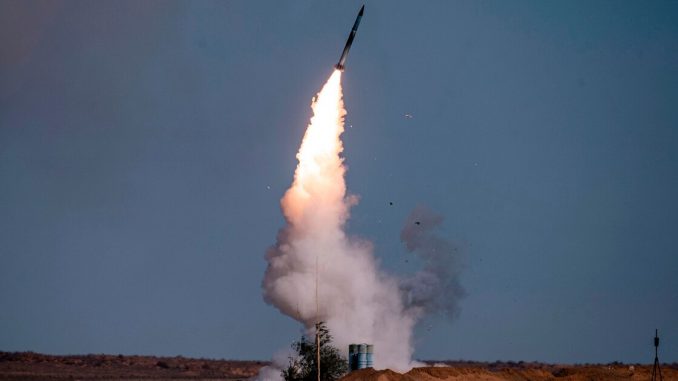
WASHINGTON — The Trump administration on Friday slammed Turkey for taking a new step toward fielding a Russian-made air defense weapon. The U.S. complaint marked a deepening rift that threatens the future of a security relationship that has been central to the NATO military alliance for seven decades.
After Turkish President Recep Tayyip Erdogan confirmed that his country had tested the S-400 air defense system and brushed off American complaints, saying, “We aren’t going to ask America,” the Pentagon hit back.
“The U.S. Department of Defense condemns in the strongest possible terms Turkey’s October 16 test of the S-400 air defense system,” the top Pentagon spokesman, Jonathan Hoffman, said in a statement. “We have been clear and unwavering in our position: an operational S-400 system is not consistent with Turkey’s commitments as a U.S. and NATO ally.”
/cloudfront-us-east-1.images.arcpublishing.com/mco/UL5YBNZXQNFR5JJMGVIGNVO5NY.jpg)
The State Department separately called Turkey’s test unacceptable and a “clear step in the wrong direction.”
“The United States has been clear on our expectation that the S-400 system should not be operationalized,” State Department spokeswoman Morgan Ortagus said in a statement. “We have also been clear on the potential serious consequences for our security relationship if Turkey activates the system.”
For months, the administration has warned Ankara that it risks U.S. sanctions under the Countering America’s Adversaries Through Sanctions Act if the S-400 system is activated.
On a technical level, the U.S. government’s concern is that the S-400 could be used by Turkey to gather data on the capabilities of the American-made F-35 stealth fighter jet, and that the information could end up in Russian hands. More broadly, Washington sees this weapon purchase as a slap at NATO and a violation of allies’ commitment to move away from Russian defense equipment.
/arc-anglerfish-arc2-prod-mco.s3.amazonaws.com/public/EZ2X3UFDXVAI3GAUWLZEUJUW64.jpg)
The U.S. kicked Turkey out of the F-35 program in 2019 after it took possession of the S-400 system. Turkey was making components for the F-35 and had planned to purchase 100 of the stealth fighters. The Trump administration has held out the possibility of easing the dispute if Turkey decides not to move forward with activating the air defense system, but Erdogan seems ready to go ahead.
“We are determined. We will continue on our path,” Erdogan said Friday.
Turkey, which neighbors trouble spots such as Syria, Iraq and Iran, has long sought to address shortcomings in air defense. It says it was forced to negotiate with Russia for the purchase of the S-400s after the U.S. refused to sell the American-made Patriot system. Turkey has also argued that the S-400 is one of the best available systems and says the deal with Russia involves joint production and technology transfers that meet its long-term goals of defense self-sufficiency.
The United States says talks on a potential Patriot deal failed over Turkey’s insistence on technology transfer rights that would have allowed it eventually to make the missiles themselves. This ran against U.S. manufacturers’ propriety interests in addition to any national security concerns.
The dispute has created unease between allies at a time of heightened U.S. tensions with Russia. Turkey’s rapprochement with Russia and its decision to buy the Russian system also coincides with growing Turkish mistrust of the U.S. over its policies in Syria. Turkey has been angered with U.S. support for a Syrian Kurdish group in Syria that is affiliated with Kurdish rebels fighting Turkey.
AP Diplomatic Writer Matthew Lee contributed to this story.


Be the first to comment